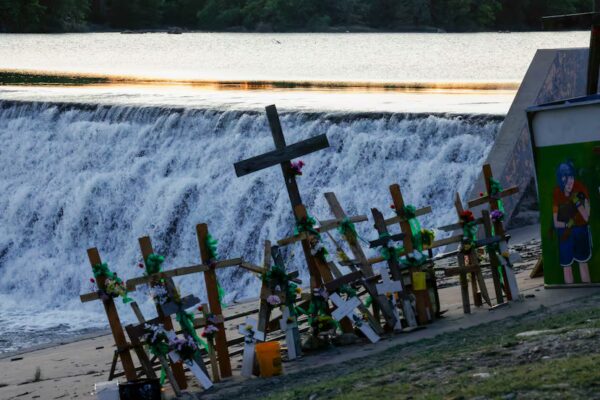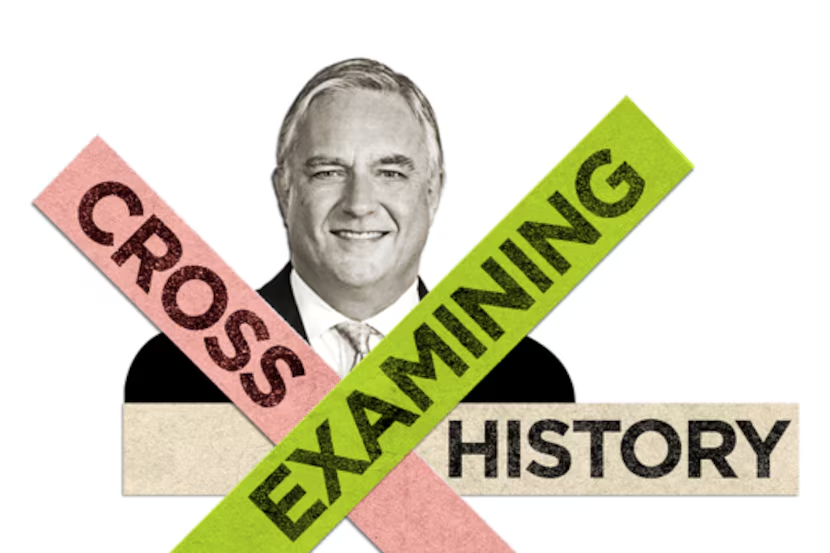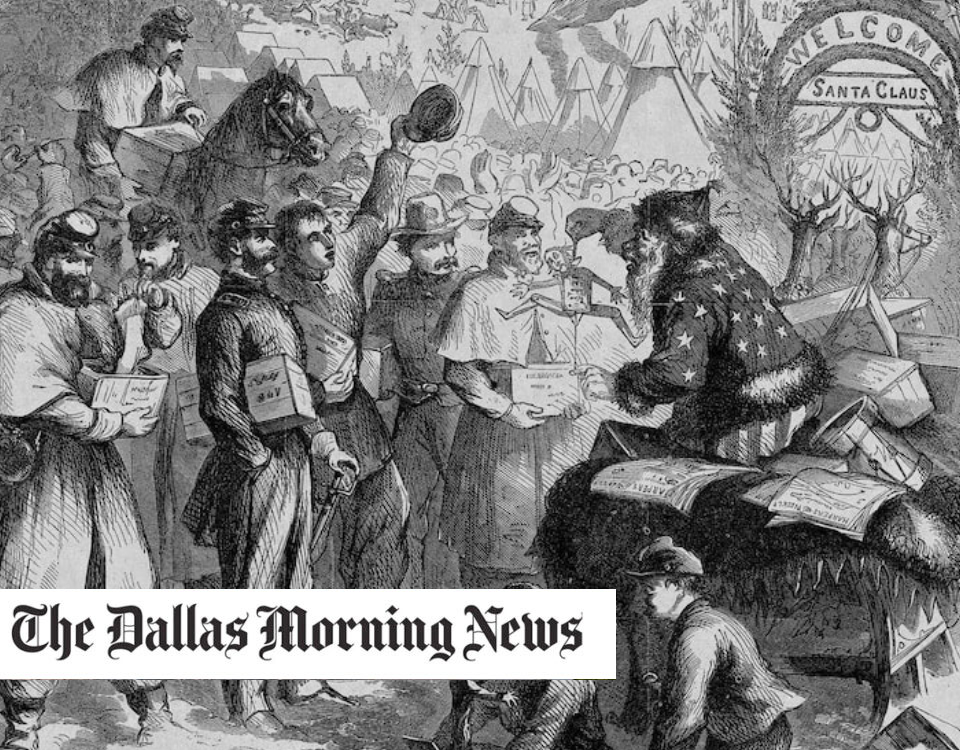One of our greatest presidents was also the most deeply acquainted with grief.
Having heartbroken friends who lost daughters and granddaughters in last month’s Central Texas flood, and mindful of their search for answers about how God could permit such a tragedy to happen, it’s challenging to find words of comfort capable of calming their anguished despair. The best approach that comes to mind is to tell how Abraham Lincoln responded to tragedy in his own life.
Having lost his beloved mother when he was 9, his sister Sarah when he was 18, and Ann Rutledge, to whom he was close, when he was 26, Lincoln knew the pain of losing a loved one. But there is no pain like losing a child. In 1850, at age 41, he lost his 3-year-old son, Eddie, to tuberculosis. Twelve years later, while he was president, he lost his 11-year-old son, Willie, to typhoid fever.
On top of these saddening events, from 1861 to 1865, as the nation’s commander in chief, he necessarily had to oversee the loss of 750,000 lives in the Civil War.
Lincoln’s spiritual journey took him from being an unbeliever during his young adult years to living the last part of his life as a true believer who repeatedly stated that, “the will of God prevails” and his singular goal was to be “a humble instrument in the hands of the Almighty.”
Lincoln knew he had two options for dealing with grief. Either he could reject the higher power in whom he had come to trust or he could immerse himself in Bible study, conversations with faith leaders and prayer. Knowing his Beatitudes, especially the one about “Blessed are those who mourn, for they shall be comforted,” Lincoln chose the latter option.
Shortly after Eddie’s death, Lincoln received counseling from James Smith, a Presbyterian minister in Springfield, and began believing in an afterlife, as proved by the words he asked his stepbrother to convey to his dying father: “If it be his lot to go now, he will soon have a joyous meeting with many loved ones gone before, and where the rest of us, through the help of God, hope ere long to join them.”
A decade later, writing to the parents of the young Union soldier Elmer Ellsworth, whom he had grown to love like a son during the early days of his presidency and who was killed in May 1861 during the war’s first month, Lincoln encouraged them to look to the one source he believed to be capable of providing them with the power to begin processing their grief. “May God give you that consolation which is beyond all earthly power,” he wrote.
When his son Willie died on Feb. 20, 1862, a nurse told Lincoln that prayers to support him were being lifted up by people from all over the country. His response showed his faith: “I need their prayers. I will try to go to God with my sorrows. I wish I had that childlike faith you speak of, and I trust he will give it to me.”
Days later, Lincoln’s trust was fulfilled. Francis Vinton, rector of Trinity Church in New York City, came to the nation’s capital to console the president and reminded him of the words in Luke 20:18: “For He is not a God of the dead, but of the living for all live unto Him.” Based on that Bible verse, Vinton told Lincoln, “Your son is alive.”
In his book Abraham Lincoln: Theologian of American Anguish, former Harvard and Stanford Chaplain Elton Trueblood gave this account of what happened next in the Vinson-Lincoln encounter: “As the president pondered, his entire outlook began to change for he realized that God cannot be defeated … It was the first experience of his life, so far as we know, which drove Lincoln to look outside his own mind and heart for help to endure a personal grief. It was the first time in his life when he had not been sufficient for his own experience. It caused him to become more confident in his approach to other men when he recognized that his confidence was no longer in himself but in the Almighty.”
Lincoln biographer Ida Tarbell identified the source of Lincoln’s newfound confidence as he began to recover from Willie’s death: “From that time on, he was seen often with the Bible in his hand, and was known to pray frequently, such that his personal relation to God occupied him much.”
John Nicolay was one of Lincoln’s secretaries throughout the war. After his boss’s death, he wrote a biography of the late president, and verified that “Mr. Lincoln was a praying man. I have heard him request people to pray for him, which he would never have done had he not believed that prayer is answered.”
Exactly why did Lincoln keep praying and wanting others to pray during their times of trial? In his book Lincoln’s Religion, esteemed theologian and historian William J. Wolf gave this explanation: “For Lincoln, the purpose of prayer was not to get God to do man’s bidding, but to place man where he might come to see God’s purposes and experience the strength of relying on His everlasting arms.”
Lincoln himself gave the following explanation for his commitment to prayer throughout his experiences with tragedies during his presidency, in a conversation with his journalist friend Noah Brooks: “I have been driven many times to my knees by the overwhelming conviction that I had nowhere else to go.”
For me, a powerful lesson to be learned from Abraham Lincoln’s heroic life is that the trauma of tragic personal loss can be overcome by directing one’s attention away from inner confusion and toward reliance upon a higher power. Then, a God-trusting person can move forward and potentially do great things for others, as Lincoln did by bringing an end to slavery and reuniting the United States when the Civil War ended.
To what extent did Abraham Lincoln finally become “a humble instrument in the hands of the Almighty”? Here’s how Tolstoy answered that question:
“Of all the great national heroes and statesmen of history, Lincoln is the only real giant. Alexander, Frederick the Great, Caesar, Napoleon, Gladstone, and even Washington stand in greatness of character, in depth of feeling, and in a certain moral power far behind Lincoln. He was a man whom a nation has a right to be proud; a saint of humanity, whose name will live thousands of years in the legends of future generations.”





